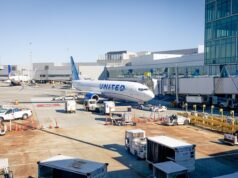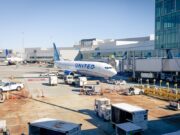With certain airlines announcing the impending elimination of Essential Air Service (EAS) routes and airline lobbyists beginning to make the rounds to push for reduced pilot qualification requirements as part of the upcoming FAA Reauthorization process, the ‘Families of Continental Flight 3407' challenged Congress and the Biden Administration to hold the line on these guidelines in the interest of the safety of the traveling public, specifically in terms of our nation's regional carriers.
“Let's keep it real and recognize this for what it truly is – the epitome of hypocrisy,” declared John Kausner of Clarence Center, New York, who lost his twenty four year old daughter Ellyce when the plane crashed less than a mile from their family home. “We have regional carriers lining their pockets with government handouts and then turning around and demanding that they be allowed to take shortcuts that have already been proven to jeopardize safety… or else. What an absolutely absurd idea. Just take a look at my daughter's picture and any politician, lobbyist or government or airlines official should be quickly and painfully reminded of what is happens when our government gives in to pressure and allows the airlines to do whatever they want.”
Since the increased entry-level pilot qualification guidelines have been introduced, after being unanimously authorized by Congress in 2010 in the aftermath of the Flight 3407 crash, the airlines have repeatedly tried to pressure both Congress and the FAA to walk them back. Despite some of these carriers being notorious for offering low wages and poor benefits, the airlines have repeatedly blamed these enhanced standards for their difficulties in hiring pilots.

“We can't say enough how dangerous this could be if these airlines push Congress down the same path that they did 20 years ago,” stated Scott Maurer of Palmetto, Florida, who lost his thirty year old daughter Lorin, an athletic department fundraiser at Princeton University. “In the aftermath of 9/11, the airlines were able to strong-arm the FAA into looking the other way when it came to safety oversight, and we had a decade-worth of regional airline tragedies and near-misses as a result. Now with the pandemic and the resulting economic challenges, the airlines are once again holding safety hostage in the attempt to make a few more bucks. Shame on our group if we stay quiet in the background while these lobbyists attempt to undermine everything that we fought so hard for over the past twelve years and that Lorin and the rest of our loved ones paid the ultimate price for.”
The family group cited the sterling safety record that has been produced as a result of the landmark regional airline safety legislation, which included the increased experience requirements, as proof that Congress should stand up to these lobbying efforts.
“Notwithstanding the manufacturing challenges of Boeing, this has been the safest era of air travel for US carriers and it's not even close'”, stated Karen Eckert of Williamsville, New York, who lost her sister Beverly Eckert, a prominent 9/11 widow and activist. “There has not been a fatal crash on a US carrier in over 13 years since Flight 3407, and prior to that, we had never even made it 3 years without such a crash. Clearly the increased pilot experience standards and the other initiatives that were a part of this legislation are working, and this is a great credit to the teamwork of FAA, Congress, and the airlines and pilot associations. To do an about face and do anything that would roll back or limit these safety advances in any way would be totally irresponsible of Congress or the Administration.”


























































































































No one is mentioning that the “1500 hour” applies to airlines and, the pilots in command, of part 135 charter. Part 135 first officers are not bound by the time requirements.
If this is the case, what is stopping “corporate/private” part 91/135 flight departments from hiring low low time pilots to fly their jets? They are legally able to hire a 300 hour pilot, yet no one is doing it. Until the FAA sees those, that can employ low time pilots under the existing regulation structure, why shouid they change the regulations. Airlines are only looking at the potential decrease in pilot salaries.